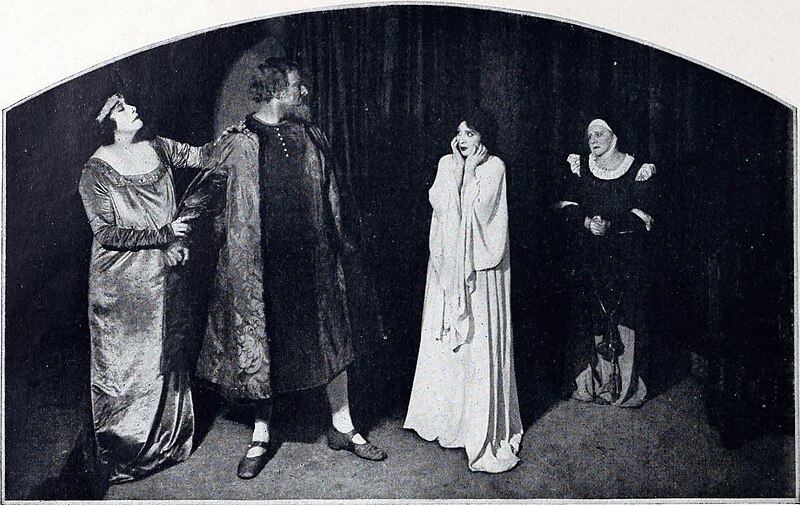
Churchill’s Shakespeare: Quoting “Romeo and Juliet”
Text from “Churchill’s Shakespeare: Romeo and Juliet,” co-authored with Valerie Lillington for the Hillsdale College Churchill Project. For the original article with endnotes, click here. To subscribe to weekly articles from Hillsdale-Churchill, click here, scroll to bottom, fill in your email in the box entitled “Stay in touch with us.” Your email address is never given to anyone and always remains a riddle wrapped in a mystery inside an enigma.
Q: Did Churchill ever quote from Romeo and Juliet?
“I knew that Sir Winston Churchill was an avid Shakespeare reader and quoter. But can someone tell me if he ever quoted from Romeo and Juliet?”
A: Once, perhaps twice…
Darrell Holley’s excellent book, Churchill’s Literary Allusions, offers only one reference to Romeo and Juliet. The Churchill Project’s digital resource of Churchill’s eighty million published words by and about Churchill offers another, but his private secretary thought it was bogus. We are not so sure. Read on and decide for yourself.
Holley’s book is one Churchill scholars should keep at their desks. Long out of print and pricey, it is an outstanding specialty study deserving reissue, even as an e-book. We have tried to find the author without success. (Reader assistance welcome.)
Mr. Holley devotes an entire chapter to Shakespeare, citing nearly fifty Churchill allusions to the Bard in his writings and speeches. To no other English author, he writes, does Churchill allude so often:
Both by formal quotations, some quite lengthy, and by well-known phrases almost hidden in his text, Churchill makes allusion to many of Shakespeare’s plays. Somewhat surprisingly, he makes no reference to any of the sonnets. It is certainly not surprising, however, that Churchill should allude often to the histories and tragedies, King John, Richard III, and Hamlet being referred to most.
“Yoke of inauspicious stars”
Churchill’s Literary Allusions offers one citation from Romeo and Juliet. In his biography of his father, Lord Randolph Churchill, Sir Winston writes: “Would he, under the many riddles the future had reserved for such as he, snapped the tie of sentiment that bound him to his party, resolved at last to ‘shake the yoke of inauspicious stars’….?”
As so often in that better-read age, Churchill didn’t bother to cite the play, assuming most of his readers would know the source.
Darrell Holley found this allusion in Romeo and Juliet, Act 5, Sc. 3, almost at the end of the play, where Romeo slays Count Paris and lays him in his tomb before taking his own fatal draught:
Depart again: here, here will I remain
With worms that are thy chamber-maids; O, here
Will I set up my everlasting rest,
And shake the yoke of inauspicious stars
From this world-wearied flesh. Eyes, look your last!
“In three long hours…”
On 18 June 1940, Churchill’s private secretary Jock Colville records another allusion to Romeo and Juliet. Colville felt certain this was not accurate:
I asked him if he would see General Sikorski tomorrow. “I will see him,” he said, “at noon,” and then went on to quote some entirely bogus quotation about that time of day, which he pretended was spoken by the Nurse in Romeo and Juliet.
It wasn’t a good idea to challenge Churchill’s recall of Shakespeare. And so we wondered, re-reading the play, whether Churchill had the quote right but not the speaker? The answer is: quite possibly. In Act 2 Juliet, talking to herself, says:
The clock struck nine when I did send the Nurse.
In half an hour she promised to return….
Now is the sun upon the highmost hill
Of this day’s journey, and from nine till twelve
Is three long hours, yet she is not come.
So, the Nurse was due back at 9:30 but she’s been gone three hours and it is noon. That is the time Churchill specified for meeting General Sikorski. If he repeated those words of Juliet’s ascribing them to the Nurse, he had the quote right but the speaker wrong.
A note on my co-author
Valerie Lillington, born in England in 1932, lived in Trinidad and Canada before emigrating to Australia in 1962, where she taught high school English and drama for almost thirty years. That included a year’s teacher exchange to America. Twice a candidate for Parliament, she enjoys an active life of travel, acting and directing. Currently she runs fortnightly sessions on Shakespeare in the local library, where Romeo and Juliet was a recent topic. She also writes and talks copiously on Charles Dickens. Valerie writes:
I saw Churchill once in London, and remember gathering round the wireless, as we called it then, to hear him speak. I was almost seven when the war started, over twelve when it finished. As members of our family, became involved, it became urgent to hear anything we could. Two of my uncles were killed and another seriously wounded. There wasn’t anyone in my class at school who did not have similar stories to tell.
More Churchill and Shakespeare
“Churchill’s Memorable Allusions to Shakespeare’s Richard II,” 2019.
“The Pool of England: How Henry V Inspired Churchill’s Words,” 2019.
“The Burton-Churchill Eruption: Coming Soon in Your Neighborhood,” 2016.






